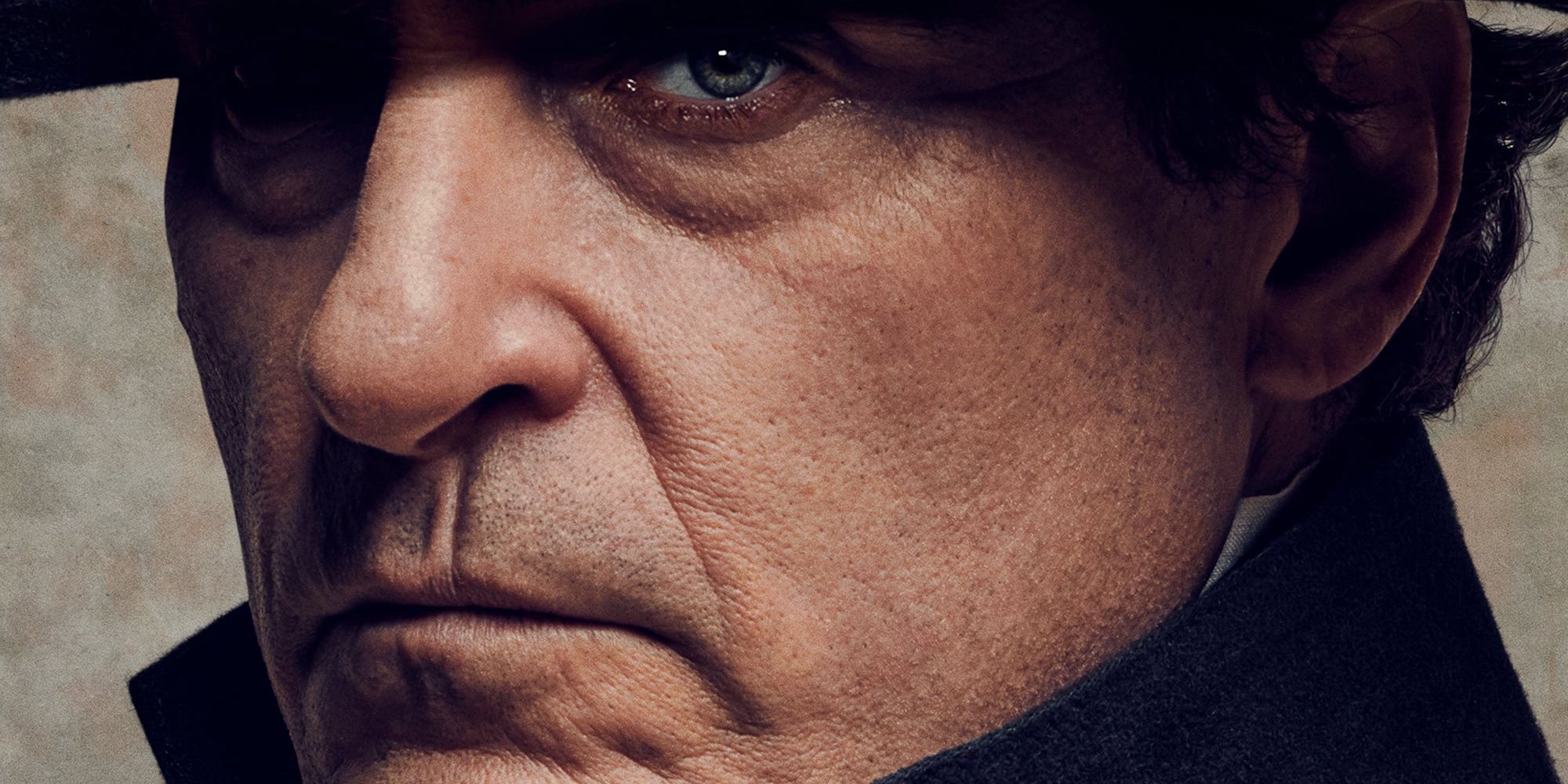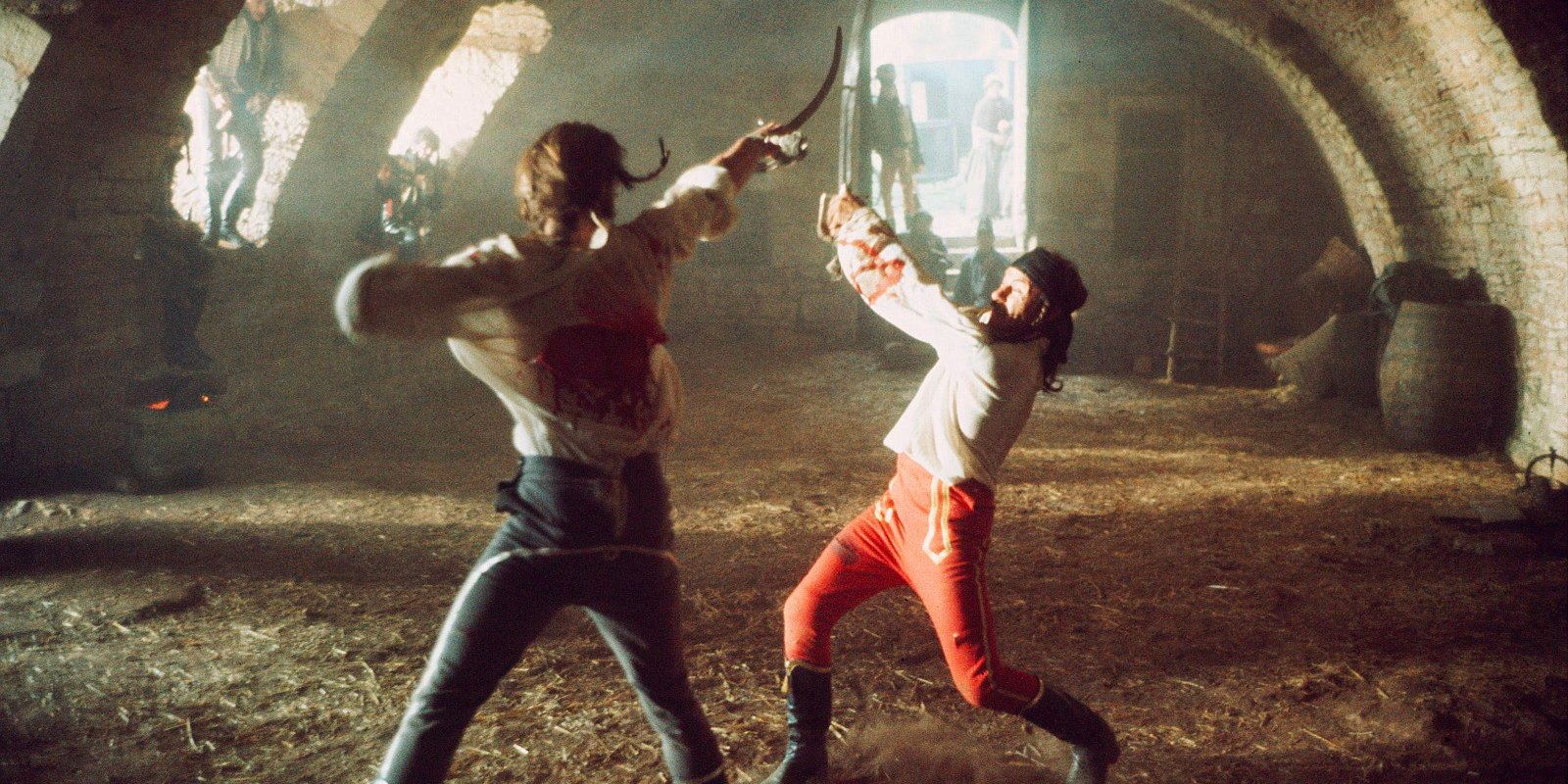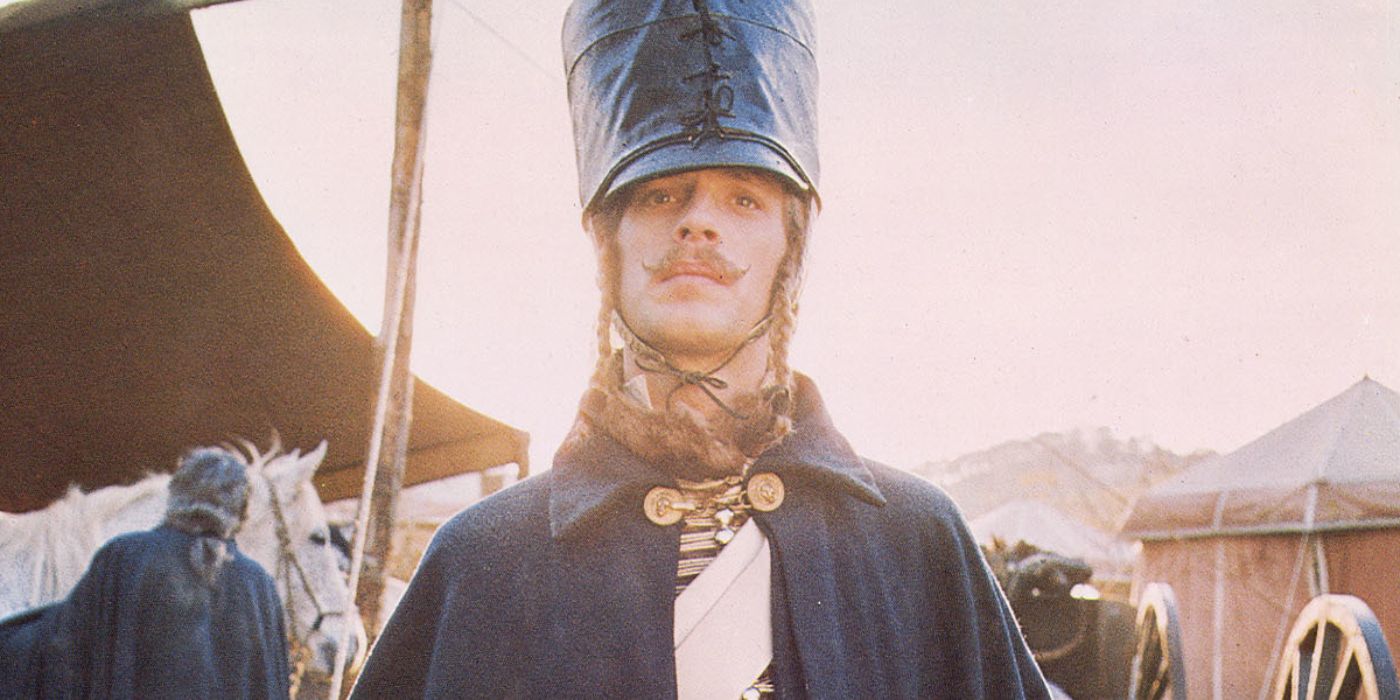The Big Picture
- Ridley Scott’s film The Duellists explores a 20-year feud between two military lieutenants driven by opposite impulses: honor and anger.
- The casting of Keith Carradine and Harvey Keitel perfectly showcases Scott’s ability to create characters driven by their inherent nature.
- Scott’s attention to visual detail, from natural lighting to expansive landscapes, immerses the audience in the film’s world and adds to its sense of grandeur.
Long have we awaited for someone to bring us a biopic of Napoleon, ever since Stanley Kubrick failed to get his off the ground. Fate has finally given us what we wanted, and it fell into the arms of Ridley Scott, which is quite fitting considering that Scott is both a massive Kubrick fanatic, and he started making feature films with a movie called The Duellists, set during Napoleon Bonaparte’s reign. It was a tale filled with all the things we’ve come to expect from a Ridley Scott film, and if nothing else, it was an early sign of the visual maximalism that Scott would become defined by.
The Duellists
France, 1801. Due to a minor perceived slight, mild-mannered Lieutenant d’Hubert is forced into a duel with hot-headed irrational Lieutenant Feraud. The disagreement ultimately results in scores of duels spanning several years.
- Release Date
- January 13, 1978
- Director
- Ridley Scott
- Cast
- Keith Carradine, Harvey Keitel, Albert Finney, Edward Fox
- Rating
- PG
- Runtime
- 100 minutes
- Genres
- Drama, War
What is ‘The Duellists’ About?
The Duellists is about two lieutenants in Napoleon’s army, D’Hubert (Keith Carradine) and Feraud (Harvey Keitel). Feraud is obsessed with dueling, and he gets in trouble when he almost kills a mayor’s son in a duel. D’Hubert is sent to tell Feraud that he must stay under house arrest. In a fit of rage, Feraud convinces himself that this is less of an appropriate disciplinary action, and is instead an active insult on D’Hubert’s part. Feraud takes this opportunity to challenge him to a duel, which D’Hubert begrudgingly accepts out of a sense of duty. The result is inconclusive, since Feraud technically hurt himself. This indecisive conclusion results in a near 20-year-long feud in which these two men will bounce off of each other constantly, both driven by completely opposite impulses.
Keith Carradine and Harvey Keitel Are Evidence of Ridley Scott’s Casting Genius
The fundamental divide between these two men is that Feraud is driven by obsession and anger, while D’Hubert is driven by honor and duty. D’Hubert only intended to follow his orders and get the necessary information across, but Feraud flew off the handle at the first chance, and D’Hubert didn’t try to push back against him until Feraud flagrantly insulted him. Since the film treats D’Hubert like the main character, we never truly learn Feraud’s motivations for his obsession, but we do get one slim insight into D’Hubert’s state of mind: when a close friend of his asks him why he doesn’t just kill Feraud in battle, D’Hubert insists that he will not sink to killing him out of combat. Furthermore, when a higher ranking officer berates him for engaging in these duels, D’Hubert insists that he won’t share any details unless Feraud gets to share his piece first. D’Hubert considers himself a gentleman who prioritizes his personal sense of pride in his code of conduct above all else. Feraud, meanwhile, is honest about his feelings to a fault, and is unapologetic about how bloodthirsty he comes off. This is where Scott’s genius for casting helps, as Keith Carradine’s unbothered resolve pairs well with Harvey Keitel’s hard-nosed pugnaciousness, clearly communicating each man’s inherent nature without the need for exposition.
Ridley Scott may have built his reputation off of his unique sense of vision, but he tends to pay attention to stories that involve people getting caught up in their self-perceptions and letting that dictate their actions, the neverending battle between headstrong emotion and clear logic. Sometimes sincerely, sometimes humorously, and sometimes cruelly, Scott is bent on making his characters be at the whim of who they truly are, no matter what their perception or the world around them tells them. This is a guy who showed us supposedly intelligent scientists losing their marbles and slipping on banana peels the minute they got involved in an unforeseen situation in Prometheus; he showed us women defying the world’s expectations by putting their dreams first with Thelma & Louise and G.I. Jane; he showed us a world built around the idea of programmed robots that think and feel much deeper than the supposedly more authentic humans in Blade Runner.
Scott may be accused of being a technical fetishist above all else, putting more care into how his films look and feel than anything else, but he is perceptive of how humans will ultimately do what they feel they must, logic be damned. In the case of The Duellists, D’Hubert and Feraud have their own separate codes of living, and they will follow those codes to the end of the line, regardless of what anyone else says.

‘Napoleon’ Rejects the Idea of the “Great Man”
Ridley Scott’s new biopic truly has a Napoleon complex.
Ridley Scott’s Knack For Visuals is Fully Realized
To compensate for the relative thinness of the plot, Scott makes sure to have every shot of his film be as visually sumptuous as possible, while still feeling tethered to the reality of early 1800s rustic living. If his adoration for Kubrick wasn’t evident enough, he heavily bases this film’s visual style off of Barry Lyndon, with its emphasis on natural lighting, muted earthy colors, and expansive landscape shots. The difference is that, while Kubrick’s approach was alienating and made every moment feel like a museum exhibit from a thousand yards away, Scott’s approach feels imbued with immediacy and a sensuous texture. It may look like a painting, but it’s a painting that you can submerge yourself in. What has always set Scott apart from other filmmakers is not his sense of storytelling, but his attention to the aesthetic details of the world around his characters. Films like Alien and Legend endured not for the baseline story, but for how Scott made the settings thrum with verisimilitude, making a spaceship feel scarier than the Haunted Mansion, and a fairytale forest feel like the catacombs of the dreams you didn’t want to wake up from.
The Duellists feels at once like we’ve time traveled to a place in time like it exists in a Romantic painter’s fever dream. When our duelists must brave the winter wonderlands for a mission, it isn’t cozy, it’s a white hellscape with vast mountains and frozen corpses littered in piles. Every duel is precluded by a jaw-dropping wide angle shot that shows the entire area around the duelists, making us familiar with the landscape and marvel at the life that’s unfurling in the background, adding to the realism. Scott puts his camera in places that make the surroundings feel angled without actually angling the camera; it’s an impressive level of visual sophistication, making the world feel so much vaster, especially with how he frequently implements fog and skylines to accentuate the harshness of the frontier. Even the final shot of the film is directly inspired by a legendary painting of Napoleon overlooking a cliff, indicating Scott’s vision being influenced by things besides film, which is an undervalued strength of great directors.
‘The Duellists’ Is Another Example of How Special Scott Is at Epics
Ridley Scott has proven himself to be one of the great practitioners of the “epic,” consistently able to make films that feel grand in scope, regardless of their length. The Duellists is only 100 minutes long, and yet you still feel the weight of 15 years passing between these two men and all that they have given up for the sake of this pointless rivalry. The reason a film like this works is the same reason that Scott made films like Gladiator and Black Hawk Down work: burying the audience in the environmental details, casting the film with the right actors and getting out of their way, and making sure that he uses his visuals to immerse the audience in the moment-to-moment reality of what’s happening, all so that it can feel like it is constantly happening with an explosive force. By assaulting us on a sensory level, he hooks us into these experiences emotionally. He has the vision of making any setting engaging, from noir-tinged shady office meetings to fluorescent-light pharmacies, and making it seem as if you can practically smell the air. He’s been doing this for over 50 years now, and if recent comments are to be believed, he isn’t stopping anytime soon.
The Duellists is available to stream on Pluto TV in the U.S.
Watch on Pluto TV
Source link


